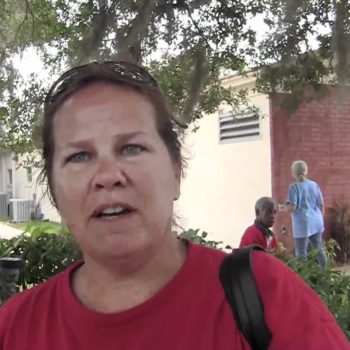At Least 53% of the Homeless Shelter Population Is Comprised of Active Workforce Members, Blowing Away Stereotypes that Suggest Otherwise
The quote above is a common NIMBY mantra often hurled at members of the houseless community. Perhaps you’ve heard it echo out of a driver’s side window in the middle of a noisy traffic jam. Perhaps you, yourself, have said it out loud, not truly aware of its weight or implications.
Toxic capitalism, corporate greed, and a thirst for power perpetuate the narrative that homeless and jobless people are the same. The problem with that position is that it simply isn’t true.
Most Unhoused People Are Already Employed
The term “working homeless” has existed for quite some time. It’s a known fact that many unhoused people are employed. The question is, just how many? If you’re one of the people who think employment would somehow solve the homeless crisis, the answer might surprise you.
In June 2021, researchers from the Becker-Friedman Institute for Economics at the University of Chicago produced a working paper on the phenomenon of working homelessness. The 97-page investigative report draws from a wide variety of sources. The data presented reflects findings from all of the following places:
- The 2010 Decennial Census
- The 2006-2016 American Community Survey
- An entire decade of linked tax and program data derived from government sources such as tax records and financial assistance records
In a candid interview about the project with UChicago News, poverty scholar Professor Bruce D. Meyer explained how homeless people are frequently left out of vital poverty statistics that would paint a more accurate picture of how they live.
“People experiencing homelessness are among the most deprived individuals in the United States, yet they are neglected in official poverty statistics and other surveys,” he said. “As a result, policymakers and others interested in understanding this overlooked and at-risk population have never had complete or reliable information from which to guide decision-making until now.”
The Study Finds That 53% of Homeless Shelter Residents are Employed
This groundbreaking study dispels several myths about homelessness, one being the age-old idea that homeless people do not work. As it turns out, this isn’t even a question of whether they are unemployed by choice or necessity. The fact is more than half of them are already employed but not earning enough to make ends meet.
Employment data from 2011 through 2018 suggests that the mean annual income for workers living in homeless shelters was just $8,169 in annual pre-tax earnings.
Indeed, the majority of these low-income earners worked part-time. However, even full-time workers earning between $40,000 and $50,000 per year grappled with the unaffordability of housing. These individuals were living in homeless shelters as well, their income topping the charts but still falling desperately short.
Homeless Shelter Residents Go to Great Lengths to Remain Employed
Most homeless shelters lock their doors at specific hours, making it difficult for their residents to work second and third-shift employment positions. Additionally, most minimum wage earners make significantly less money than is required to afford stable housing.
Despite all these odds stacked against them, they continue laboring in the workforce, defying the stereotype that they do not want to work. The fact that they press on through the hardship of working in positions that aren’t even paying them a livable wage suggests they want to work and are making great strides to contribute to society.
Nearly Half of All Unsheltered Homeless People Work As Well
At this point, you might think this diligent work ethic only applies to the sheltered homeless population. Surely people living unsheltered, sleeping rough on city streets and stretching out over the hostile architecture in the bustling subways, aren’t toiling away at thankless jobs.
This study proves that at least 40.4% of unsheltered homeless people are employed. They earn slightly less than their sheltered houseless peers.
Rough sleepers earned a median wage of just $6,934 in 2015. Imagine trying to survive on an income that low! Would you feel motivated to go to work in that case? If your answer is a resounding no, perhaps even you are not dedicated enough to outwork an unsheltered homeless person, many of whom are holding down multiple job positions simultaneously.
Other myth-busting finds from the same study include the following:
- Sheltered and unsheltered homeless people exhibit higher rates of cognitive and physical disabilities.
- 89% of adults residing in homeless shelters already receive government benefits while living in abject poverty.
- The longer people endure homelessness, the lower their incomes decline, even when they can continue in positions of employment.
- A lack of cognitive ability is a critical trait that makes a huge difference between poor people becoming homeless and poor people remaining housed.
- People tend to experience homelessness in the same state where they used to have housing, dispelling the myth that most homeless people are from someplace out of town.
So there you have it. “Get a job.” and “Go back to where you came from.” are hurtful insults that don’t even apply to most homeless situations. Now that you know the truth about working homelessness, please discuss these findings with your state representatives.
Contact Your State Representatives and Demand the Right to Housing for All
There is a very real encroaching homeless crisis unfolding all around us. The only thing that can truly fix it is safe, affordable, and permanent housing.
As the economy becomes increasingly more uncertain, millions of jobs on the market are not paying a livable wage. The latest data shows that working homelessness is not the exception. It is the rule.
Contact your local representatives and demand that housing be made a human right.













